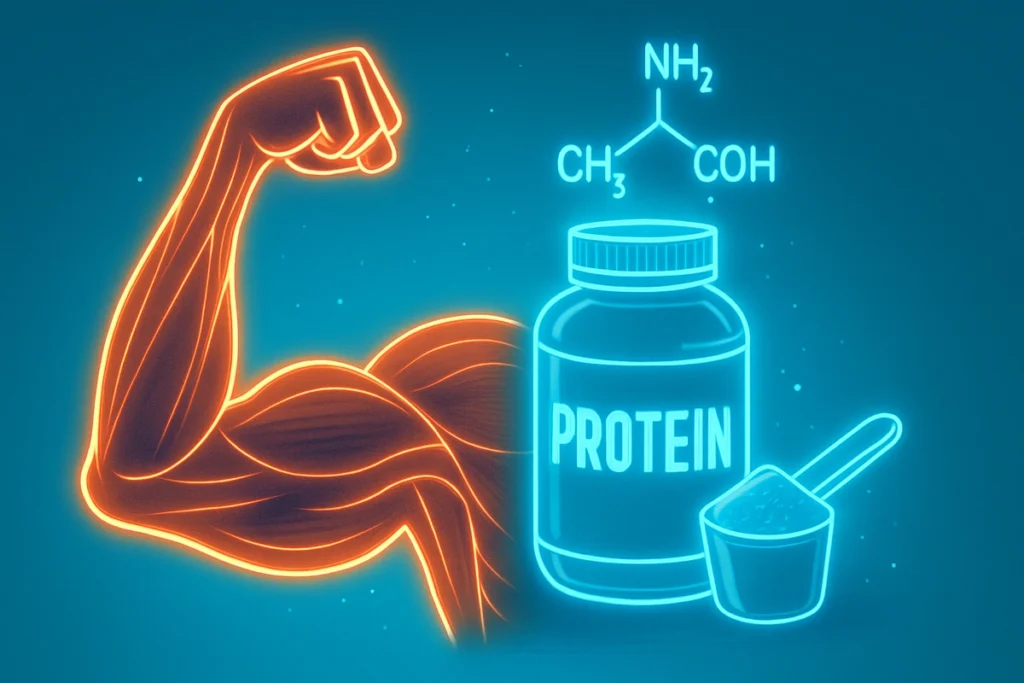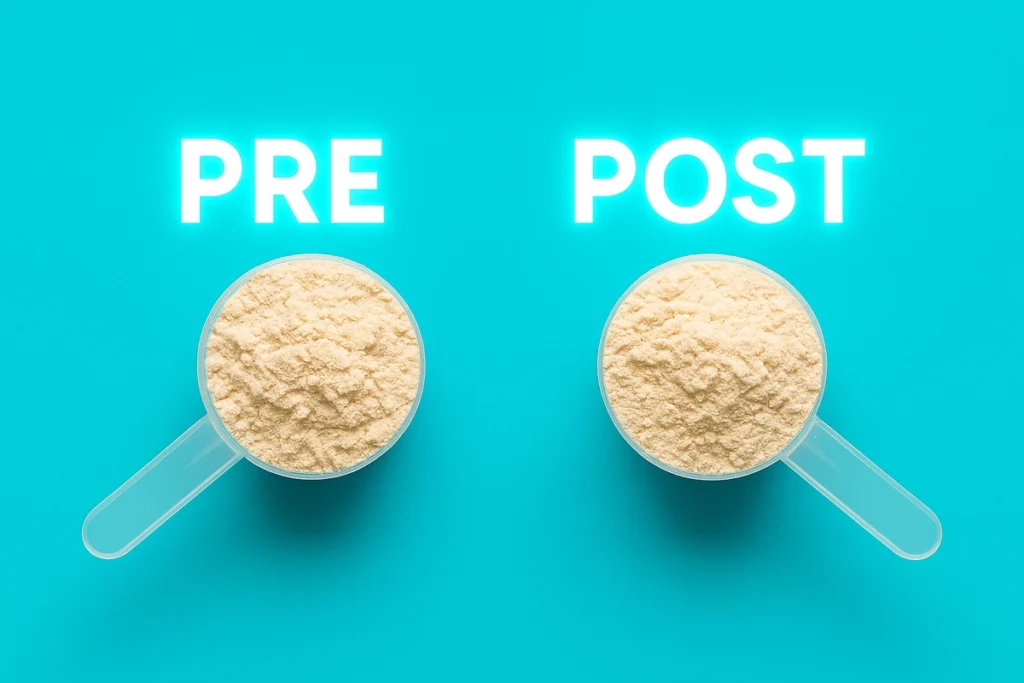Not sure whether to take your whey protein before or after hitting the gym? You’re not alone—and the answer can directly impact your results.
Whether you’re chasing muscle growth, faster recovery, or better performance, timing matters more than you think.
In this article, you’ll get a clear, expert-backed answer—plus real-world examples from clients and personal experience—so you never waste a scoop again.
Table of contents
- When to Take Whey Protein for Best Results
- Why Timing Matters for Muscle Growth and Recovery
- Whey Protein Before a Workout – Pros and Cons
- Whey Protein After a Workout – Pros and Cons
- What If You Train Fasted?
- What I Recommend as a Coach (Based on Real Results)
- FAQs: Can You Take Whey Both Before and After?
- Final Verdict: Pre vs Post Workout – What Actually Works?
When to Take Whey Protein for Best Results

If you’re short on time, here’s the deal:
Whey protein works best when taken after your workout.
It helps repair muscle tissue, boosts recovery, and supports growth exactly when your body needs it most.
That said, some exceptions exist—like if you train fasted or haven’t eaten for hours. In those cases, a small dose before training can help.
For more on post-training benefits, read this full whey protein post-workout guide.
Why Timing Matters for Muscle Growth and Recovery

Your body breaks down muscle during training. The magic happens after your session—when it starts rebuilding stronger fibers.
Whey protein is fast-digesting, which makes it perfect for this window of opportunity.
When you give your muscles the building blocks (amino acids) right after they’ve been stressed, you speed up the repair process and stimulate more growth.
If you’re curious how much to take, check out this article on daily whey intake for muscle growth.
Whey Protein Before a Workout – Pros and Cons

Pros:
- Helpful if you haven’t eaten in 3–4 hours
- Prevents muscle breakdown during training
- Can be paired with carbs for energy
Cons (based on my experience):
- Might cause bloating or heaviness if taken too close to training
- Can slow you down during intense lifting
I’ve had this issue myself during leg days. A pre-workout shake made me feel sluggish and full—definitely not what you want under the barbell.
To understand how whey compares to other options like EAAs, see this comparison guide.
Whey Protein After a Workout – Pros and Cons

Pros:
- Accelerates recovery
- Reduces muscle soreness
- Easy and fast to digest
- Fits naturally into your post-gym routine
Cons:
- Needs to be planned ahead if you’re not going home right away
Honestly, this is where whey shines the most.
I always keep a scoop in my gym bag. Post-lift, I just mix it with water and I’m good to go.
Learn more about the best whey proteins for muscle gain and recovery.
What If You Train Fasted?

If you’re training first thing in the morning, like many of my clients do, fasted training is normal.
In that case, I recommend taking whey protein right after your workout.
Take Emma, one of my early-rising clients. She trains at 6 a.m., completely fasted. Adding a whey shake immediately post-workout made a clear difference in her strength and energy.
It also helped her maintain lean muscle while cutting. For skinny beginners, here’s a specific whey guide.
What I Recommend as a Coach (Based on Real Results)

In most cases, I recommend whey after training.
You get the benefits of rapid absorption, faster muscle repair, and easier meal timing.
One client, Liam, was taking whey in the morning—way before his afternoon training. Once we switched to post-workout whey with a banana, his gains finally kicked in.
Within 6 weeks, he added nearly 2.5 kg of lean mass.
If you’re wondering how whey compares to mass gainers, this comparison will help.
FAQs: Can You Take Whey Both Before and After?

You can, but for most people, it’s not necessary.
The only time I’d suggest both is if you’re training fasted and you won’t eat a meal for hours after.
In that case, having a scoop before and one after can keep you covered.
But if you eat a balanced meal 1–2 hours before your workout, one post-workout shake is enough.
Also, remember that if you’re not training at all, whey isn’t useless. Here’s what happens if you take whey without working out.
Final Verdict: Pre vs Post Workout – What Actually Works?

Whey protein timing isn’t rocket science. But based on 10+ years of coaching and personal experience, I can confidently say:
Post-workout is the sweet spot.
Just make sure you take it within 30–60 minutes after training.
Pair it with some quick carbs like fruit or rice cakes for better results.
And no—plant-based athletes, I haven’t forgotten you. For a solid comparison, check out whey vs plant protein for bodybuilding.
If you’re curious about slow-release protein too, here’s a full breakdown of whey vs casein.
Remember—supplements support your consistency. They’re not magic.
But when used right, they can absolutely enhance your recovery, gains, and performance.



Leave a Reply